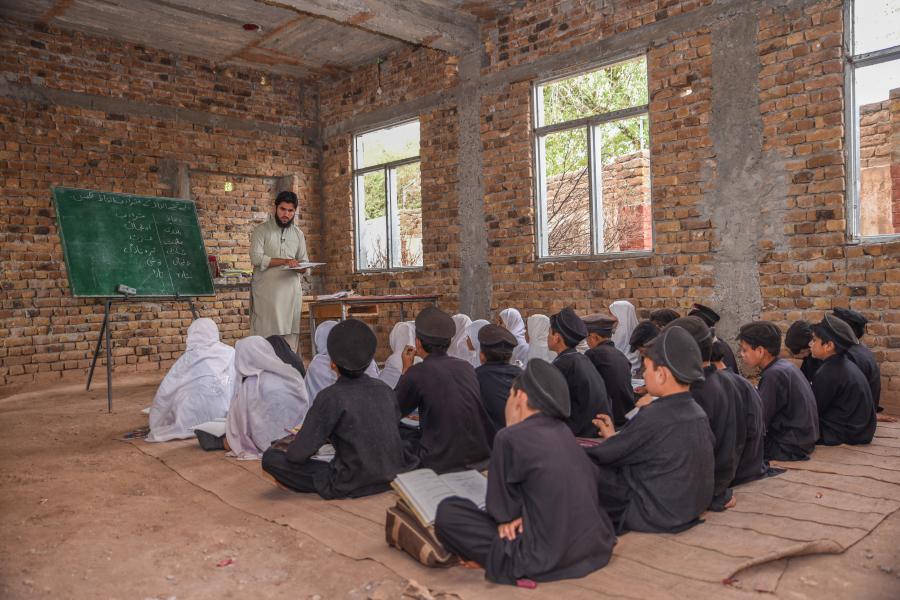
Education is more than a fundamental right; it is the cornerstone of a sustainable, fair, and just society. As emphasized in Sustainable Development Goal 4 of the United Nations, the vision is to provide inclusive, equitable, and quality education for all by 2030.
The importance of quality education cannot be overstated in Pakistan, where educational disparities continue to divide urban and rural populations. In breaking the cycle of poverty, it plays an important role, promoting gender equality and fostering peace, innovation, and progress.
In many parts of the world, access to school has improved, but the challenge now extends far beyond enrollment. SDG 4 envisions education systems that are not only accessible but also effective, where students are taught by trained teachers in safe and sound, well-equipped environments, using relevant and inclusive curricula.
It provides equal opportunities regardless of gender, income, disability, or ethnicity and includes specific targets such as free primary and secondary education, technical and vocational training, and lifelong learning opportunities.
The case to invest in education is very strong. Studies show that every additional year of schooling can boost a person’s earnings by up to 10%. Social connections and engagements can be enhanced with education; it supports public health and contributes to more resilient communities. But in some countries like Pakistan, specifically in underserved regions such as Lakki Marwat, Bannu, and so on, these benefits remain out of reach for millions.
Also Read: Bannu Police Foil Terrorist Attack Near School, Kill Up to Three Militants
The Pakistan Ministry of Education estimates that around 22.8 million children between the ages of 5 and 16 are out of school. In these areas, shortages of qualified teachers, infrastructure, and persistent gender inequality are everyday hurdles to learning.
Mr. Alamgir Khan, REO (Regional Education Officer) for Afghan refugee children in KP, stresses that at the primary level, education should be focused on developing students’ curiosity, encouraging them to think for themselves, and teaching them the importance of being responsible, respectable, and active members of their communities.
To address the educational crisis, there are many efforts underway at both international and national levels. Global programs like Education Cannot Wait (ECW) provide learning opportunities to children in emergency and conflict zones. UNESCO’s World Education Monitoring Report continues to offer data and policy guidance. Within Pakistan, initiatives such as the Ehsaas Education Stipends help the enrollment and retention of disadvantaged children, specifically girls. Innovative tools like the Taleemabad mobile app have also brought free, curriculum-aligned educational content to underserved communities.
The road ahead is still long. Education spending in Pakistan remains below the 4–6% of GDP recommended by UNESCO. More trained teachers are needed, especially in rural areas, alongside investments in gender-sensitive and disability-inclusive infrastructure. Technology must be better integrated into classrooms, and adult literacy and vocational training must be expanded to ensure that all age groups benefit from learning opportunities.
Pakistan’s future depends on how it educates its people. Without closing the gaps between rural and urban schools, between boys and girls, and between the privileged and the marginalized, sustainable development will remain out of reach. Collective action from government, civil society, educators, and communities is necessary to build a more just and knowledgeable society.
As Malala Yousafzai once said, “One child, one teacher, one book, one pen can change the world.” This change begins with a commitment to ensuring quality education for every individual because the promise of a better future depends on it. A nation’s progress is measured not just by its infrastructure or economy, but by the knowledge, skills, and values of its people. By empowering individuals through education, societies can unlock their full potential and foster innovation, resilience, and equity. The journey toward quality education may be long and complex, but it is the most powerful investment a country can make in shaping a brighter, more sustainable future for all.
Note: The writer is an Ms scholar at Institute of Management Sciences Peshawar.